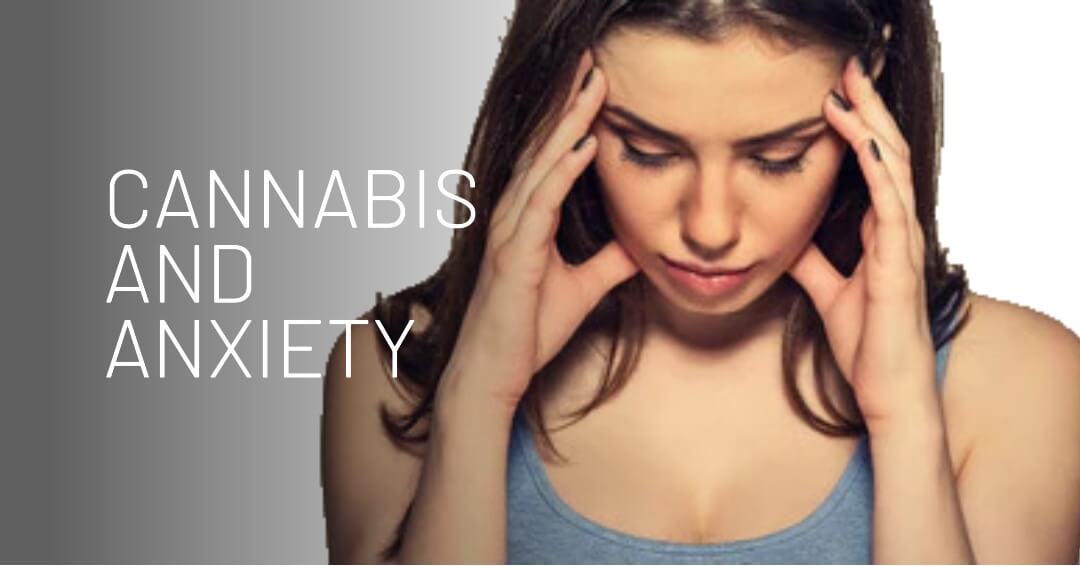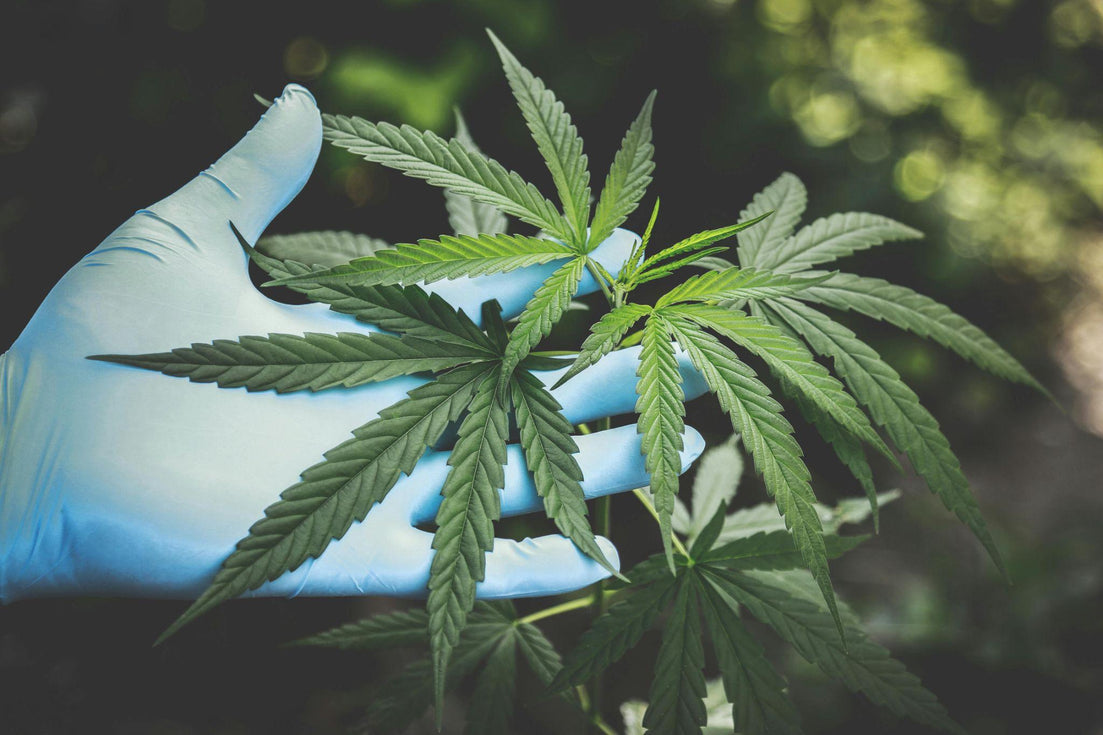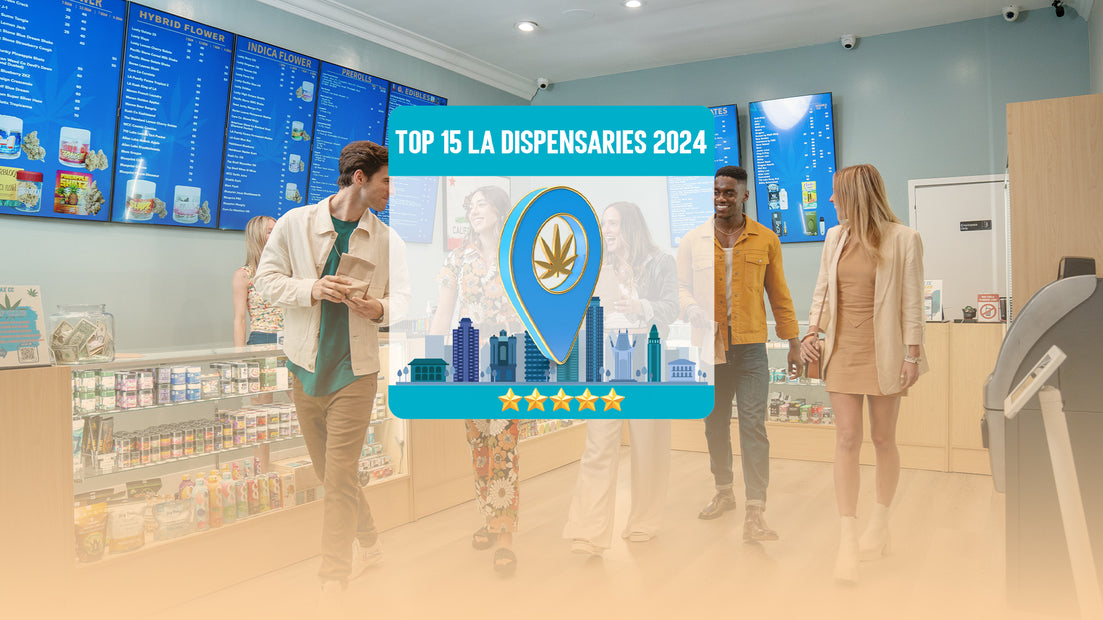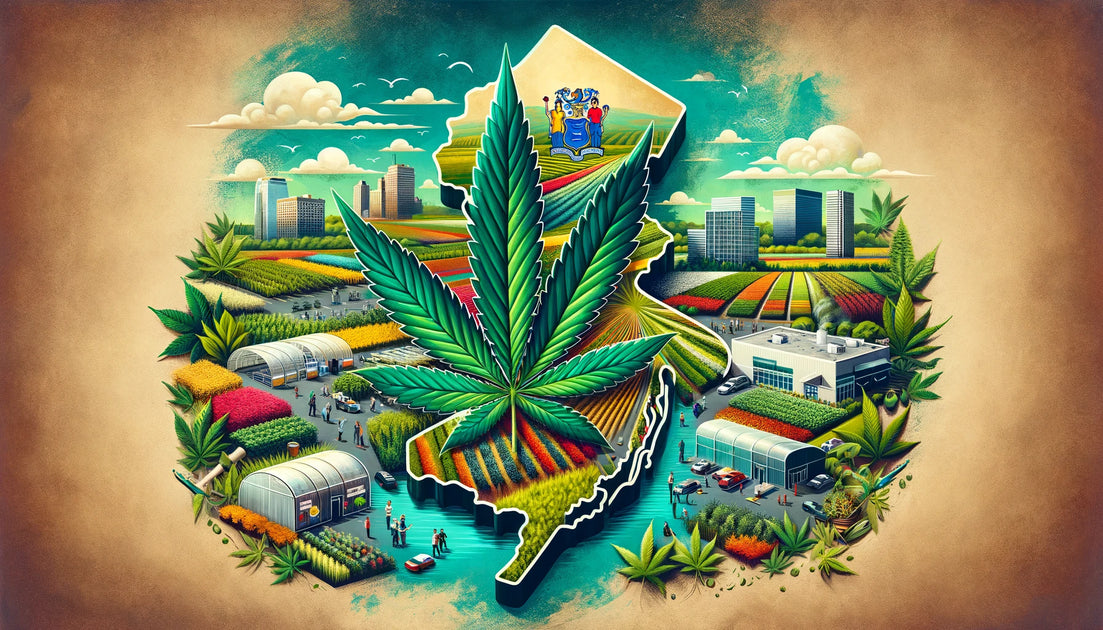Your cart is currently empty.

The impact of cannabis on anxiety disorders has been a topic of debate for several years now. However, we now know more about how marijuana interacts with the brain. In this article, we will discuss how cannabis could affect your anxiety and what types of cannabis will be the most helpful in treating anxiety disorders.
What is an anxiety disorder?
It seems like every day more and more people are getting diagnosed with some sort of anxiety disorder. Perhaps we can thank the business of modern life, our diets, or environmental stressors for the increase, we're not really sure, though. Whatever the reason may be, most everyone has experienced anxiety at some point in their life.
Anxiety disorders occur when anxious behavior and feelings are persistent and cause significant disruptions in daily life. Disorders can manifest themselves in a variety of different ways, but they fit into a few broad categories.
Generalized anxiety disorder
Those with generalized anxiety disorder (GAD) constantly worry about everything. Their minds are a minefield of questions, fears, and worries.
Extreme worrying almost every day for six months is a common sign of GAD. Those with GAD worry about several different aspects of their lives. Some common targets of this anxiety disorder are finances, work, and relationships.
Social anxiety disorder
People with social anxiety disorder (SAD) have an extreme fear of being judged by others. This can manifest in a variety of ways: you might be too afraid to use public transportation; you might have trouble walking around in places with lots of people.
When you start to avoid social situations because of your anxiety, that’s when it has begun to impact everyday life.
Panic disorder
Panic disorder is characterized by recurrent panic attacks. During a panic attack, you might feel an extreme tightness in your chest, your breathing will become fast and shallow, and you feel suddenly overcome with an intense, crippling sensation of anxiety. You might feel nauseated, shaky, or suddenly begin to sweat.
Just because you have a panic attack does not mean that you have panic disorder. Panic disorder is characterized by frequent panic attacks, often brought on by the fear of having another panic attack, thus creating this vicious cycle of attack after attack. For example, if you start to notice the physical sensation of your heart racing, you may quickly become anxious that you are having a panic attack, which inevitably triggers another panic attack.
Other disorders
Post-traumatic stress disorder and obsessive-compulsive disorder are also associated with anxiety disorders.
Can cannabis treat anxiety?
The relationship between cannabis and anxiety is complicated and, frankly, a little controversial. In some cases, marijuana can make anxiety a lot worse. For others, it can give a much-needed calm feeling. The trick is learning what type of cannabis works best for you, when the best time is for you to use it, and how frequently you should use it.
Every person has biochemistry unique to them. Different people will respond in completely different and unique ways to various strains and cannabinoids.
Cannabinoids are the active compounds present in cannabis that interact with the body because they mimic the endocannabinoids the body makes naturally. Psychoactive THC and non-psychoactive CBD are two of the most well-known cannabinoids found in cannabis. Both of them have potent anxiolytic properties. However, proper dosage is extremely important if you want effective anxiety relief.
Endocannabinoids and anxiety
THC and CBD react with different endocannabinoid receptors in the body and thus have different effects on the body. THC binds directly to the CB1 cell receptor, which is found in various regions of the brain. Turns out, the CB1 receptor plays an important role in our fear response.
Research has shown that there are CB1 receptors on the amygdala, a primal part of the brain that manages stress and controls our fight-or-flight reaction.
The brain engages this region through a network of endocannabinoids, known as the endocannabinoid system, or the ECS. Back in 2001, a team of researchers from Vanderbilt University Medical Center wanted to see how endocannabinoids affected the response we have to stress and fear.
Using mice, they discovered that when endocannabinoids were present in the amygdala, the region became less excitable. This means that the cannabinoids had a dampening effect, which suggests that plant cannabinoids might have a similar calming effect on our fear response.
New vs. regular users
Those new to cannabis might have a problem with THC affecting their anxiety. High doses of THC have been correlated with panic attack-like symptoms, though they are only temporary. As the effects of cannabis begin to wear off, so does the intensity of the panic attack feeling.
Regular users, however, don’t really have this problem, thanks to tolerance. In a review of scientific literature on cannabis and anxiety, a team lead by Jose Alexandre Crippa explained:
About 20-30% of users show brief acute anxiety reactions after smoking the drug. Such symptoms usually occur when the drug is used at high doses and are more common in drug-naıve subjects and in novel or stressful environmental situations. – Crippa and team
They went on to say that:
Long-term users typically report that cannabis use is associated with a reductionin anxiety. Relaxation and relief from tension remain the most common effects of using cannabis and the most common reasons for using the drug.
Finding the right cannabis
While THC is associated with increased anxiety in high doses, CBD is not. Studies from 2011 have found that CBD significantly improved social anxiety symptoms, as well as reduced anxiety associated with public speaking.
A single-case examination of a 19-year-old woman shows that she was given 300mg then 600mg of CBD as a treatment for a medical condition. She did not experience any paranoia, anxiety symptoms, or symptoms of withdrawal after using cannabis. If you think cannabis made your anxiety worse, try just CBD. Another factor in this could be the strain you're choosing.
Similarly, many anxiety sufferers find relief with indicas over sativas. Since the brain tends to be overactive in those with anxiety, sativas might make the anxiety feelings worse. Indicas, on the other hand, produce a strong body high, causing the muscles and the brain to relax. It also may put you to sleep depending on how much you smoke.
Best cannabis strains for anxiety disorders
If you’re looking to get the most out of your medical cannabis treatment, here’s a loose breakdown of what strains are generally thought to work well for the treatment of anxiety disorders:
- Panic Disorder: Stay away from high doses of THC, opt for CBD or very low doses of THC, avoid sativas
- SAD: Low doses of THC, high doses of CBD, or strains with diverse cannabinoid profiles, avoid sativas
- GAD: Indicas or indica-dominant hybrids, high CBD strains, low doses of THC
Strains to consider:
- One to One
- Cannatonic
- Cinex
- Harlequin
- ACDC
Products high in CBG (cannabigerol) are also thought to be great for the treatment of anxiety. However, high-CBG products are currently more uncommon. California-based Harborside sells a high-CBG product called Jayden’s Juice, which is said to have 12.5mg of CBG and over 16mg of CBD per milliliter. If you’re able to give this strain a try, it might be a good option as well.
Does cannabis cause rebound anxiety?
There’s another thing you need to watch out for with cannabis: rebound anxiety. Rebound anxiety occurs once the cannabis has worn off. You may have had some relief to begin with, but, when the effects of that last bowl begin to fade away, you begin to feel anxious and irritable.
This same effect happens when you take pretty much any anxiety medication, so you may not be entirely unfamiliar with it. If you pop a Xanax, for example, it’s not uncommon to notice a low mood or irritability the next day. Fortunately, there are ways to get around this with cannabis. Here are some general guidelines to help with rebound:
Try edibles
The reason for this is simple: the effects of edibles last a whole lot longer than smoked or vaporized cannabis. Your body has to metabolize the infused-food, so the effects tend to come on more slowly and last a few hours longer than a few rips off a joint. This means that you won’t find yourself starting to feel anxious again two hours after you medicate.
If you’re at work, for example, an edible might be able to get you through the whole day. You won’t experience as many ups and downs while you’re trying to get things done.
To test out how they work for you, always try them on a day when you don’t have anything important to do. If your edibles contain THC, the high might be significantly stronger than you're used to from smoking or vaping. Too much THC in an edible can also make you feel extremely paranoid and anxious.
Explore the dosage that works best for you and be careful to not get yourself in too deep. If needed, opt for high-CBD, low-dose THC edibles.
Keep doses as small as is effective
As with any medication, the more you take, the greater the come-down. Start with small doses first and work your way up until you find the dose that feels right for you; you may have to adjust this over time, though. You build up tolerances to cannabis over time, so if you want to use it as medication, you don’t want to start with a massive dose right off the bat.
Using cannabis only as needed can also help mitigate some of the rebound effects. Just as many doctors prescribe Xanax or Ativan as needed, you can use cannabis in a similar way and delay your tolerance, so you can keep the same dosage for longer. If you decide to use it this way, pick strains containing low to moderate THC, or are not associated with paranoia like sativas are.
Leafly’s Strain Finder is a great tool for weeding out anxiety-provoking strains. You can choose to exclude strains that are known to cause paranoia.
Cannabis vs. benzodiazepines
There has been a five-fold increase in deaths from benzodiazepines between 2001 and 2014. As more and more anti-anxiety medication is being prescribed, more people are being exposed to the drugs’ dangerous side effects, side effects that you don't get from a natural treatment like cannabis.
Benzodiazepines are not meant for long-term use. They are meant as a temporary treatment to help you calm down and overcome intense anxiety. Common side effects of benzos include:
- Dizziness
- Intense sedation
- Dependence and addiction
- Weakness
- Blurred vision
- Increased depression and anxiety symptoms
- Insomnia
- Amnesia
Cannabis has a few side effects, but they're all temporary and easy to handle. There has yet to be a single death from a cannabis overdose and it does not create the extreme physical withdrawal symptoms associated with benzos.
Does cannabis help with benzo withdrawal?
Anyone who has experienced benzodiazepine withdrawal knows that it is absolutely awful. You might be awake for two days straight. One day you’ll feel fine, and the next you’re afraid to leave your house and can barely talk thanks to the rebound caused by the drug.
Never quit a benzodiazepine cold-turkey. If you simply stop taking a benzo, you face a serious risk of seizures. Always work with a doctor to come off of the drug, rather than just handling it yourself. You will have to titrate down little by little until you get down to just a quarter of a dose of medication; a process that can take several weeks.
Though scientific literature is lacking, CBD may be extremely helpful during benzo withdrawal. Benzodiazepines artificially prevent your body from being able to burn through a neurotransmitter called gamma-aminobutyric acid (GABA), a natural anxiolytic. When you have too little GABA, you feel intense anxiety, restlessness, and are susceptible to seizures.
During withdrawal, you have extremely low GABA. This is why CBD may be able to help. CBD is a GABA uptake inhibitor, meaning that it increases available concentrations of GABA in your brain. This has a calming, antianxiety effect and theoretically makes you less prone to seizures. This is why those suffering from horrible epileptic conditions have found relief in CBD tinctures.
CBD may prove to be an effective tool for benzo withdrawal, but THC is not. High doses of THC suppress GABA, which can increase your anxiety and worsen some of your withdrawal symptoms.
How to help panic attacks brought on by THC
Here are three tips to help you calm down when experiencing a cannabis-induced panic attack:
Tip 1: Change your environment
As Crippa and his team mentioned earlier, anxiety symptoms can be exaggerated if you’re in an uncomfortable environment. If you find yourself feeling a little weird at a party, go out for a walk, duck into the bathroom for a few minutes, or a dark, quiet room. If you can safely get yourself home, even better. You just need some time to chill out away from the crowd and in a comfortable environment.
Tip 2: Take a breath
When you’re in a quiet space, do some deep breathing exercises. Try to really focus on the sensation of the breath, what it feels like to breathe in and out. Concentrating on your breathing distracts you from any jumbled, paranoid thoughts you might be having and helps you to calm down.
Tip 3: Try some CBD
As early as 1982, studies have shown that CBD helps to block some of the anxiety created by THC. If you know you’ll be using cannabis later, having a high-CBD strain on hand as a backup might help if you need something to quickly take the edge off. Using a CBD vape pen or tincture might help you too.
Always remember that cannabis alone will not cure you of your anxiety. It is simply another medication like Xanax or Ativan, albeit a more natural one. The most effective treatments combine medication, psychotherapy, and lifestyle changes. If you find yourself feeling overly anxious, you should consult with your doctor and find a therapist to help you work through and cope with your condition.



